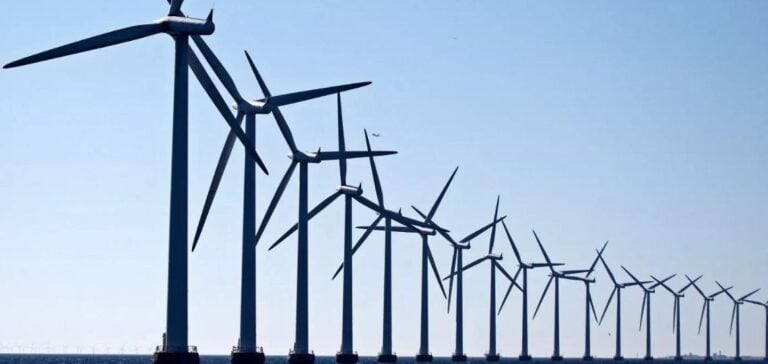The European energy market, often the subject of debate, has just been vigorously defended by Catherine MacGregor, CEO of Engie. In a recent interview, she asserted that this market is an “opportunity” for European countries and that it has proved its effectiveness, particularly during the energy crises of 2022 and 2023.
Beneficial complementarity
MacGregor emphasized that the European market is based on a network of interconnected infrastructures, enabling countries to benefit from the complementary nature of their production systems. For example, countries in the south benefit from high levels of solar energy production, while those in the north harness wind power. Hydropower, gas and nuclear power round out this diversified energy mix. She also pointed out that without this integrated market, European countries would be exposed to much more volatile prices and greater risks of blackouts. In 2022 and 2023, when French domestic production was insufficient, the European market ensured the necessary supply of electricity, thus avoiding major shortages.
Political challenges
These statements come a few days after Jordan Bardella, president of the RN (Rassemblement National), expressed his desire to renegotiate the rules of this market with Brussels. Bardella argued that immediate negotiations would reduce French consumers’ electricity bills by 30%. In response, MacGregor warned that reintroducing energy barriers within Europe would increase the risk of supply problems and higher prices, undermining market stability and efficiency.
Renewable energies at the heart of the debate
Engie’s CEO also defended renewable energies, which she believes account for a growing share of employment in France, with over 150,000 jobs. Over the past two decades, the development of renewable energies has made it possible to avoid importing 910 million barrels of oil and reduce France’s energy bill by 40 billion euros. Thanks to technological advances, these energies are now less costly and more profitable. Coupling these renewable sources with battery networks compensates for their intermittency, ensuring a stable supply of energy.
A controversial future
However, not all voices agree on this vision. RN icon Marine Le Pen recently declared that she wanted to put an end to renewable energies in France, calling them “not clean” and “alternative”. It has even expressed its intention to dismantle a number of wind turbines installed on French territory.
These opposing positions highlight the challenges facing Europe’s energy sector. The balance between economic efficiency, security of supply and sustainable development remains a central topic of debate. The future of the European energy market and national energy policies therefore remains uncertain, influenced by political decisions and technological innovations.






















